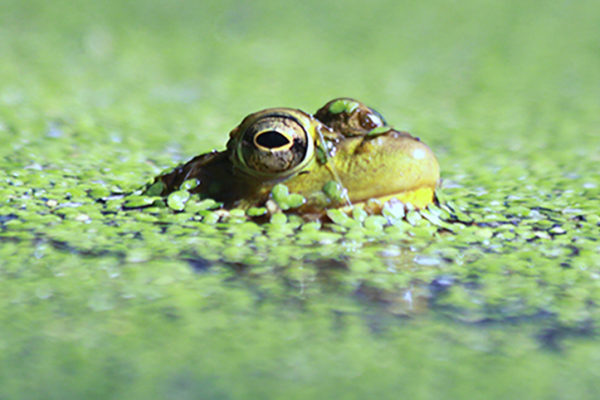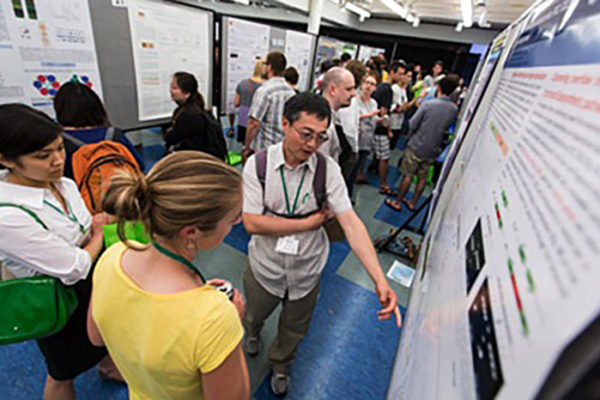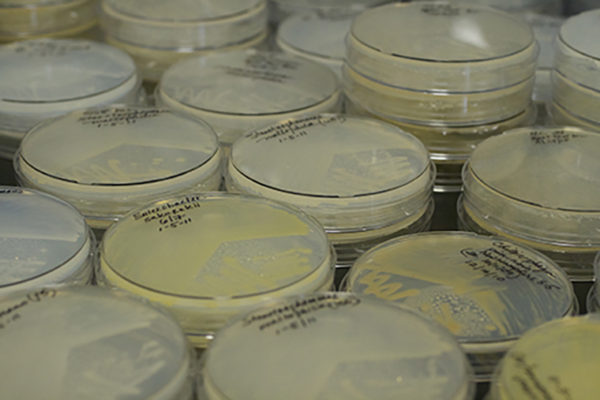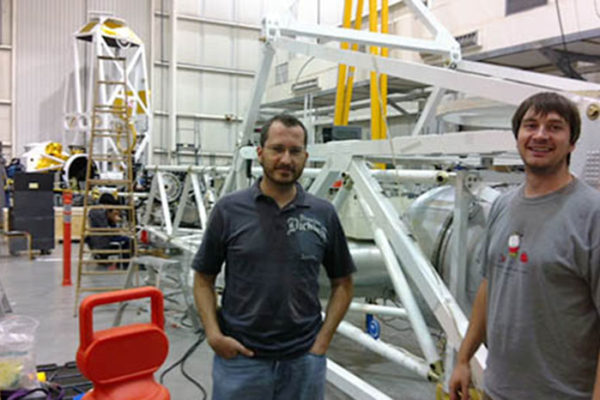Renowned Internet copyright lawyer, political activist Lawrence Lessig to deliver two lectures Oct. 10
Legal scholar, author and political activist Lawrence Lessig, JD, is such a
popular speaker that it’s challenging to get him for one lecture, so
Washington University is doubly fortunate to present an Assembly Series
talk by Lessig twice in one day – Thursday, Oct. 10 — on two
different subjects.
‘Evo-devo’ trailblazer Brian Hall to give Assembly Series lecture
Scientific discoveries in understanding how body structures change and advance over time are relatively recent and are the result of scientific trailblazers working in the field of evolutionary developmental biology (evo-devo).
One of those pioneers, Brian K. Hall, will visit Washington University and give an Assembly Series lecture at 4 p.m. Monday, October 7 in McDonnell Hall Room 162.
Missouri ponds provide clue to killer frog disease
In Missouri, about a third of the ponds are infected with chytrid, the notorious skin fungus that has sickened and killed amphibians in other parts of the world. Why only a third, Washington University in St. Louis scientists wondered? A comprehensive study of the the ponds suggests there are hidden constraints on the survival of the fungus. One possibility is that invertebrates present in some ponds but not others allow the fungus to persist by acting as alternative hosts or reservoirs.
What historians have to say about global warming
The public discussion of global warming can feel very stuck at times. An innovative course at Washington University in St.
Louis offers a way forward by making available the efforts of historians
to integrate natural history and human history over the past 40 years.
Taught by Venus Bivar, PhD, assistant professor of history in Arts & Sciences, it is an
introduction to a discipline called environmental history, with a
special focus on climate change.
Medical startup hatched at Washington University continues strong performance
Andrew Brimer and Abigail Cohen, May graduates from the
School of Engineering & Applied Science at Washington University in
St. Louis and co-founders of the med-tech startup Sparo Labs, have won
the $150,000 CIMIT Student Technology Prize for Primary Care, bringing
their total competition winnings to more than $275,000.
Photo-palooza
More than 1,000 science researchers from around the world descended upon St.
Louis during the second week of August for what Provost Holden Thorp,
PhD, wittingly referred to as “Photo-palooza” for the gathering’s focus on photosynthesis research.
Washington University’s International Center for Advanced Renewable
Energy and Sustainability (I-CARES) served as host to the 11th Workshop
on Cyanobacteria and the Photosynthetic Antenna Research Center (PARC)
hosted the Light Harvesting Satellite Meeting 2013.
Two new NSF grants allow Bayly to study brain biomechanics
Philip Bayly, PhD, the Lilyan and E. Lisle Hughes Professor of Mechanical Engineering and chair the Department of Mechanical Engineering & Materials Science, has received a three-year, $429,222 grant from the National Science Foundation to study mehanical properties in the brain.
Model organism gone wild
Some wild clones of social amoebas farm the bacteria they eat, but this is a losing strategy if nonfarming amoebas can steal the farmers’ crops. To make the strategy work, the farmers also carry bacteria that secrete chemicals that poison free riders. The work suggest farming is complex evolutionary adaptation that requires additional strategies, such as recruiting third parties, to effectively defend and privatize the crops, the Washington University in St. Louis scientists say.
Balloon-borne astronomy experiment X-Calibur racing to hit wind window
In a few days, a balloon-borne telescope sensitive to
the polarization of high-energy “hard” X-rays will ascend to the edge of
the atmosphere above Fort Sumner, N.M. Once aloft, the telescope will stare at black holes, neutron stars
and other exotic astronomical objects that shine brightly in the X-ray part of the spectrum in order to learn about their nature and structure. After years of preparation, the X-Calibur team is racing to get the experiment mission-ready in time for the stratospheric wind event they hope to ride.
Entrepreneurship ingrained in students as soon as they arrive on campus
New Washington University students interested in entrepreneurship can get their feet wet before classes even begin. The IDEA program, from the Skandarlis Center for Entrepreneurial Studies, introduces students to the university’s entreprenuerial ecosystem, allowing incoming students to connect with each other and with upperclassmen during a weeklong orientation program.
Older Stories




